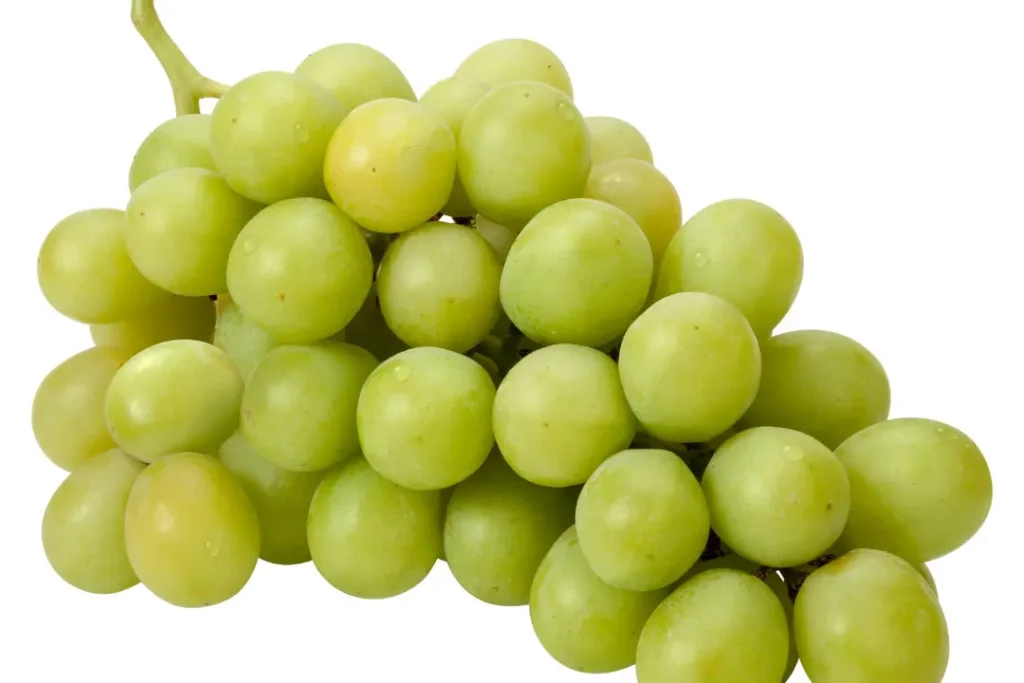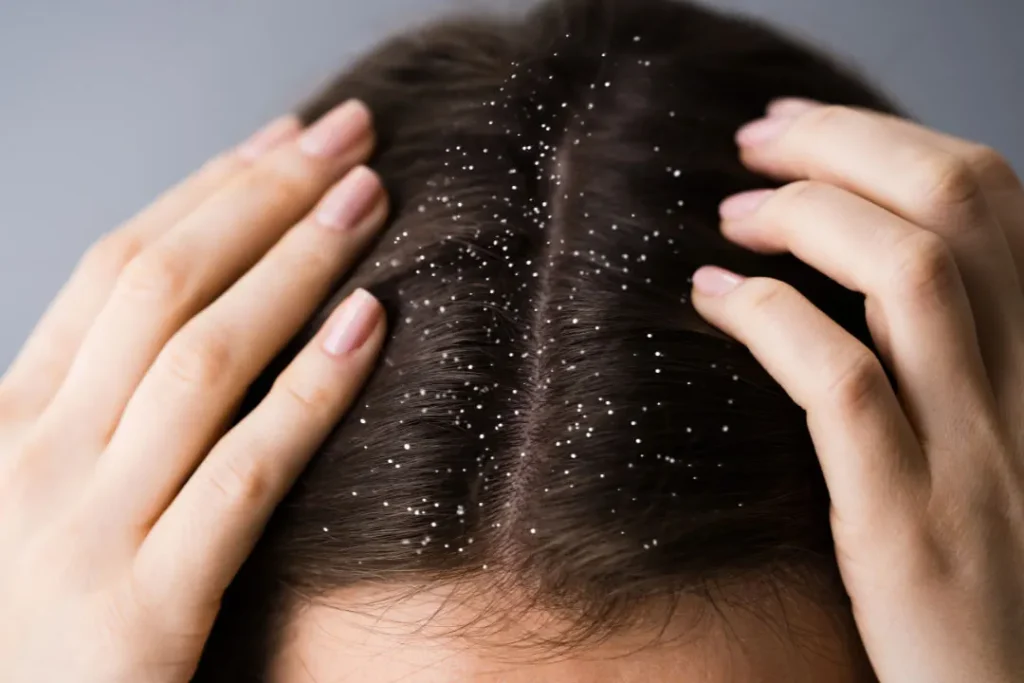Resveratrol is a polyphenol naturally found in grapes, berries, and other plants. This potent antioxidant is known for its health benefits and anti-aging properties, but there is also a long list of resveratrol benefits for hair.
When it comes to making a great first impression, having healthy, shiny, and vibrant hair can go a long way. Not only does luscious hair boost your confidence and self-esteem, but it can also enhance your professional image and open doors to new opportunities. But having great hair doesn’t come naturally to everyone, and having a first-rate hair care routine can make all the difference. Read on to learn more about resveratrol and how this compound can benefit your hair.
You May Also Like:
What Are the Benefits of Using Avocado Oil on Hair?
Can Drinking 1 Soda a Day Really Increase Your Risk of Hair Loss?
Resveratrol benefits for hair
Resveratrol is a naturally-occurring polyphenol compound in various plants, including grapes, berries, and peanuts. It is known as an antioxidant, which means that it helps to protect cells from damage caused by free radicals. Some research reports that resveratrol offers potential health benefits, such as improving heart health by reducing inflammation and lowering blood pressure. Additionally, resveratrol may have anti-aging properties that keep your skin youthful. One of the often overlooked potential benefits of resveratrol is its ability to improve hair health. Keep reading to learn five resveratrol benefits for hair and why you should consider adding it to your hair care routine.

Resveratrol benefits for hair:
1. Promotes hair growth
Resveratrol may help to promote hair growth by stimulating blood flow to the scalp, which delivers essential nutrients and oxygen to the hair follicles. Some studies show that resveratrol may also maintain the production of keratinocytes, which are the cells responsible for producing the protein keratin, which forms the structure of the hair. Maintaining keratin production at healthy levels can help strengthen hair. Additionally, resveratrol’s antioxidant and anti-inflammatory properties can help to protect hair follicles from damage and maintain a healthy scalp environment for optimal hair growth.

Resveratrol benefits for hair:
2. Protects hair from damage
With its antioxidant properties, resveratrol may help to protect your hair from damage by neutralizing free radicals, which are molecules that can cause oxidative stress and damage to hair follicles. Resveratrol may also help maintain the integrity of your hair follicles by reducing inflammation and promoting a healthy scalp environment. Additionally, resveratrol utilizes its antioxidant properties to prevent your hair from being damaged by environmental stressors such as UV radiation, pollution, and heat styling, which can cause your hair to become brittle, weak, and prone to breakage.
Resveratrol benefits for hair:
3. Reduces scalp inflammation
Scalp inflammation can interfere with hair growth by disrupting the normal hair growth cycle and damaging hair follicles. Resveratrol has anti-inflammatory properties which can help reduce scalp inflammation and prevent hair loss. Furthermore, resveratrol’s anti-inflammatory properties could also help to alleviate scalp irritation and redness caused by conditions such as psoriasis and seborrheic dermatitis. These conditions can cause excessive scalp flaking and itching, leading to hair damage and loss. Reducing scalp inflammation fosters a healthy scalp environment, which can help to prevent these conditions and promote healthy hair growth.
Resveratrol benefits for hair:
4. Strengthens hair
Stronger hair is less prone to damage and more resilient to environmental stressors such as heat and pollution. Resveratrol can help to strengthen your hair by promoting the production of collagen, a protein that provides structure and elasticity to the hair shaft. Collagen is a critical component of hair and its production naturally declines as we age, which can lead to weaker, more brittle hair. By promoting collagen production, resveratrol can help strengthen the hair shaft and reduce breakage and split ends, improving the appearance of your hair and potentially reversing the damage done by aging.

Resveratrol benefits for hair:
5. Improves scalp health
Resveratrol may have antibacterial and antifungal properties, which can help to maintain a healthy scalp environment. A healthy scalp provides your hair follicles with the nutrients and oxygen they need to thrive, making it essential for healthy hair growth. Resveratrol benefits for hair can include promoting scalp health and supporting optimal hair growth. Furthermore, resveratrol’s antibacterial and antifungal properties could help to prevent dandruff and other scalp conditions that can lead to hair loss and damage.
Maintaining healthy hair is a wide concern. Taking supplements that include resveratrol could provide a boost to your hair health. myPEAK Radiance was carefully designed by myPEAK Supplements to help improve skin and hair health. It contains a blend of natural ingredients, including vegan collagen amino acids, potent plant-based superfruits, high-dose biotin, and resveratrol. Together, these compounds can help encourage a healthy, youthful appearance, improve skin and hair elasticity, and reduce signs of aging. Additionally, the resveratrol in myPEAK Radiance can help to promote hair growth, protect against damage, reduce inflammation, and strengthen hair.
myPEAK Radiance is vegan, plant-based, non-GMO, and gluten-free, making it accessible to a wide range of consumers. Furthermore, all myPEAK supplements are lab-tested, cGMP-certified, and manufactured in the USA in an FDA-registered facility.

Helping your hair to grow and thrive
Resveratrol benefits for hair are numerous, including its ability to potentially promote hair growth, protect against hair damage, reduce scalp inflammation, strengthen hair, and improve scalp health. This makes it an excellent addition to any hair care routine. As with any new ingredient, it is always best to consult a healthcare professional or licensed cosmetologist to determine the best course of action for your specific hair needs. Our hair is one of the first things people see when they meet us. Having good hair not only helps us look great, but it can also make a lasting first impression.
Further Reading:
Hindawi Journals: Role of Resveratrol in Regulating Cutaneous Functions
MDPI: Effects of Natural Polyphenols on Skin and Hair Health: A Review
BYRDIE: Antioxidants Are Crucial for Healthy Hair—Here’s Why
National Center of Biotechnology Information: Effects and Mechanisms of Resveratrol on Aging and Age-Related Diseases
Mayo Clinic: Red wine and resveratrol: Good for your heart?
Medical News Today: How can antioxidants benefit our health?
Important Note: The information contained in this article is for general informational purposes only, and should not be construed as health or medical advice, nor is it intended to diagnose, prevent, treat, or cure any disease or health condition. Before embarking on any diet, fitness regimen, or program of nutritional supplementation, it is advisable to consult your healthcare professional in order to determine its safety and probable efficacy in terms of your individual state of health.
Regarding Nutritional Supplements Or Other Non-Prescription Health Products: If any nutritional supplements or other non-prescription health products are mentioned in the foregoing article, any claims or statements made about them have not been evaluated by the U.S. Food and Drug Administration, and such nutritional supplements or other health products are not intended to diagnose, treat, cure, or prevent any disease.